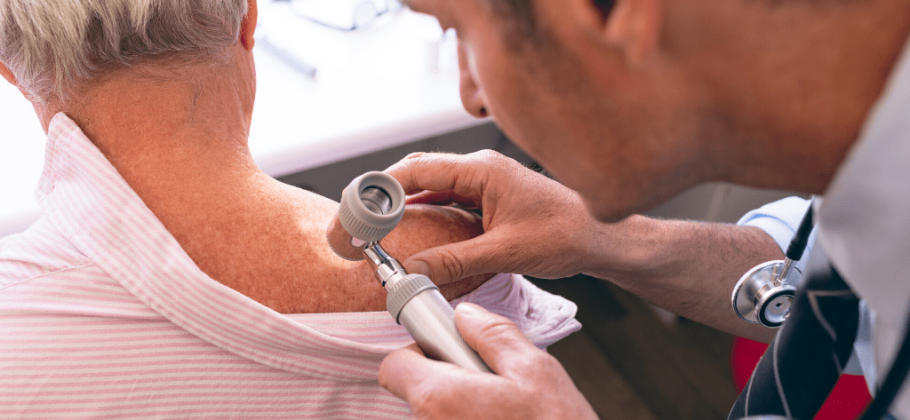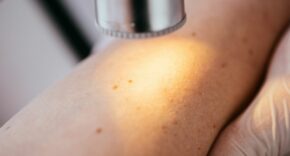New evidence published this week in leading medical journal JAMA shows that people with suspected skin cancer could be diagnosed using AI technology DERM, with the same accuracy as clinical specialists.
In a study of over 1500 patients, DERM successfully identified 100% of melanomas, with over half in the earliest stage of malignancy. Early and accurate diagnosis of skin cancers increases chances of survival by 87%.
Latest research published in the Journal of the American Medical Association Network (JAMA) this week marks a new breakthrough in AI-lead skin cancer diagnosis.
DERM is an AI technology platform created by Skin Analytics to assist doctors in the identification of skin lesions and it successfully diagnosed 100% of melanomas in this first-of-its-kind study to explore the use of AI in dermatology. Led by Royal Free London NHS Trust and spanning seven different hospitals, the study concluded that the accuracy of DERM was comparable to that of a skin cancer specialist.
Every year, around 16,000 people in the UK are diagnosed with melanoma, which is an aggressive form of skin cancer. As the fifth most common form of cancer in the UK, the incidence has doubled in the last ten years alone and approximately 2,300 people die annually of the disease.
Greater access to early and accurate diagnosis can be lifesaving. When caught early, patients have more than a 95% chance of survival, but this drops as low as 8% if melanoma is diagnosed at a later stage. In the study DERM was able to identify more than half of the melanomas at their earliest stage in the top layer of skin, or less than 1mm deep1 – evidence that AI could play a role in supporting timely detection.
According to NHS England, 2017-18 saw 13 million primary care consultations for skin disorders and 1.16 million referrals, up 15% from 2013/14. Whilst the efficiency savings and economic impacts of DERM are yet to be analysed, it is clear that low-cost and accurate screening methods, using technologies like AI, could be pivotal in helping to relieve the pressure of an overstretched and under-resourced NHS.
Commenting on the use of DERM to diagnose patients in the future, Dr. Harpreet Sood, an NHS GP said: “With an increasing number of skin-related consultations and referrals in the NHS, this technology provides a potential tool for clinicians to better manage more dermatology cases in the community, enable appropriate referrals and reduce variation in diagnosis and management of skin-related cases.”
Guy Boersma, Managing Director of Kent Surrey Sussex Academic Health Science Network, also said:
“AI offers lots of promise to the health and care sector, with a clinical workforce struggling to keep up with demand from a growing and ageing population. Image recognition technology is particularly promising, offering ‘augmented insight’ and what Eric Topol calls ‘the gift of time’ to busy clinicians. Increasing the research evidence-base for AI generally, and image-recognition diagnostics in particular, is a national and international priority which will bring the potential benefits of AI technology to NHS patients faster.”
Skin Analytics Founder, Neil Daly commented: “At Skin Analytics we’re extremely proud to have this pivotal study into the effectiveness and accuracy of DERM published in a prestigious publication. We hope this real-world evidence will go some way to demonstrating that, when used as a tool to support physicians, AI has the potential to improve access to assessments, reduce the burden of skin cancer on the NHS, and ultimately ensure that more people are diagnosed earlier and can access life-saving treatment sooner.”











